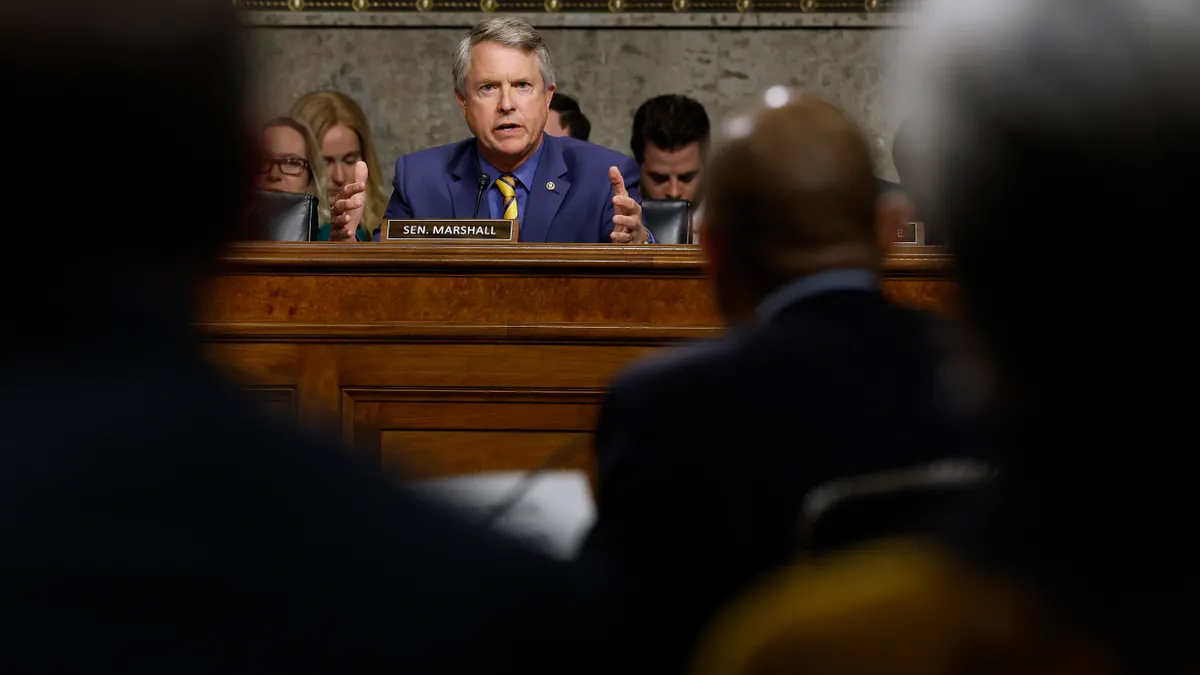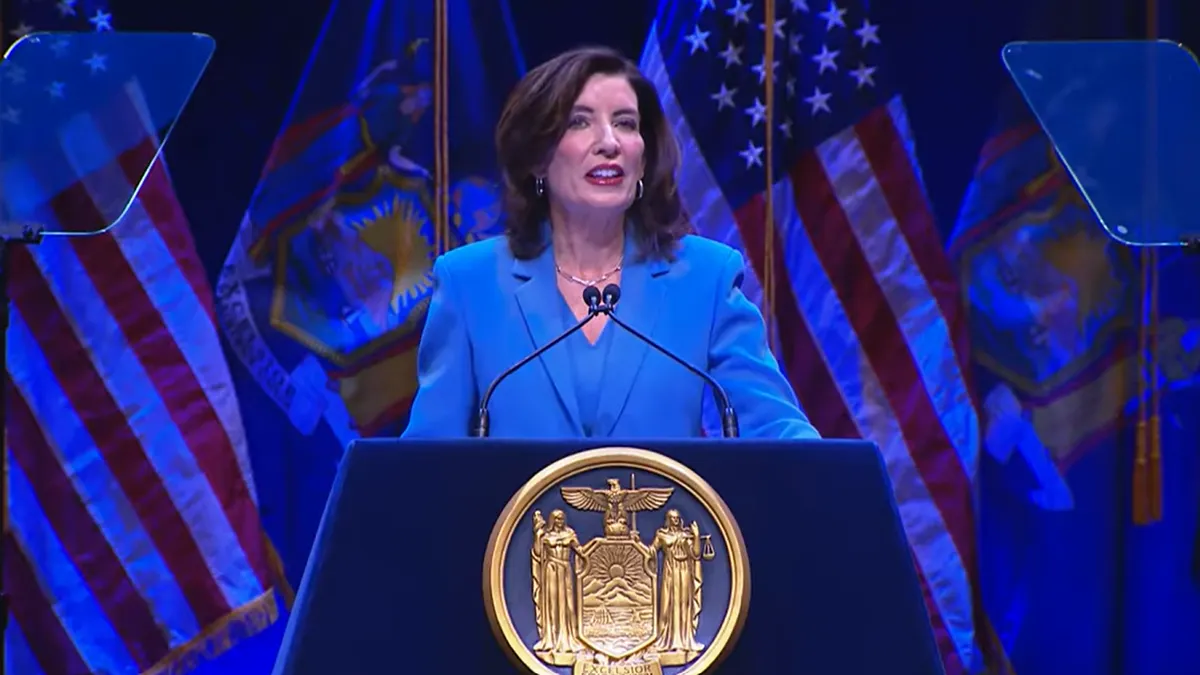Sens. Roger Marshall and Dick Durbin are seeking to attach legislation aimed at increasing credit card network competition to a stablecoin bill that advanced in the Senate Monday.
Late Tuesday, the bipartisan duo offered their previously proposed Credit Card Competition Act as an amendment to the GENIUS Act stablecoin bill. A procedural Senate vote on the GENIUS Act bill, which would regulate the expanding cryptocurrency industry, moved that bill closer to passage Monday after some Democrats reversed course and supported the bill.
Durbin, a Democrat from Illinois who is also the Senate minority whip, has been partnering with Marshall, a Kansas Republican, since 2022 to pass legislation that would require big bank card issuers to ensure that merchants have options beyond Visa and Mastercard for processing transactions when consumers swipe their credit cards.
Specifically, their amendment to the GENIUS Act bill calls for amending the Electronic Fund Transfer Act to require the Federal Reserve to implement regulations within a year of passage prohibiting card issuers or the networks from restricting the number of networks available to merchants for processing credit card payments. It would also prohibit issuers and networks from forcing merchants to use security technology for processing credit card transactions if it’s not offered for use with all of a merchants’ networks.
The amendment would apply only to bank card issuers with assets of more than $100 billion.
The CCCA legislation has been a point of contention between banks and retailers for years.
The campaign to pass such a bill has been backed by retailers and their trade groups, such as the National Retail Federation and the Merchants Payments Coalition, but has drawn protests from financial institutions and their trade groups, including the Electronic Payments Coalition.
Those interest groups were quick to pounce on the possibility that the legislation might have found the vehicle it needed to pass through Congress as part of the GENIUS Act bill. The credit card legislation could potentially attract support from more Democrats for the stablecoin bill, which has faced intense opposition from some.
A vote on the amendment, and perhaps even the GENIUS Act bill, could come as soon as this week, but may extend into next week, following the Memorial Day holiday break on Monday, said Doug Kantor, who serves as general counsel for the National Association of Convenience Stores. He’s confident that there is “a lot of support for the amendment.”
Kantor’s camp has long supported Durbin’s campaign to rein in what they consider the “duopoly” of Visa and Mastercard’s grip on the card network industry. They contend those two networks’ control of the market has driven up card processing fees for merchants and has resulted in higher costs for consumers.
Nonetheless, opponents of the amendment have been issuing condemnations of the legislation for weeks. They’ve expected the senators would try to tuck it into another bill as an amendment, as Durbin did in 2010 when he ushered through a namesake amendment to the Dodd-Frank Wall Street Reform and Consumer Protection Act. That bill capped the amount that issuers and networks can charge for debit card transactions.
“These untested mandates have never had a relevant committee hearing; they have never had an open debate,” EPC spokesperson Nick Simpson said by email Tuesday.
Simpson reiterated the EPC’s long-held arguments against the CCCA legislation, including that any reduction in credit card swipe fees would mainly benefit big retailers, not small businesses, and wouldn’t result in any savings for consumers.
“The real fatal flaw is the impact these mandates would have on American households, small businesses, community banks and credit unions, and local economies,” Simpson said. “The only winners would be the corporate mega-stores leading the charge for them to become law.”
On the contrary, Kantor, who is also an MPC executive committee member, said in a Wednesday interview that he represents small businesses that have pushed for the legislation. He also argued that inflation for consumers would have been worse if not for the Dodd-Frank debit card restrictions.
Correction: This story has been updated to say the amendment offered by Durbin and Marshall mirrors the prior CCCA legislation, and to note that the Monday Senate vote on the GENIUS bill was a procedural one.






















